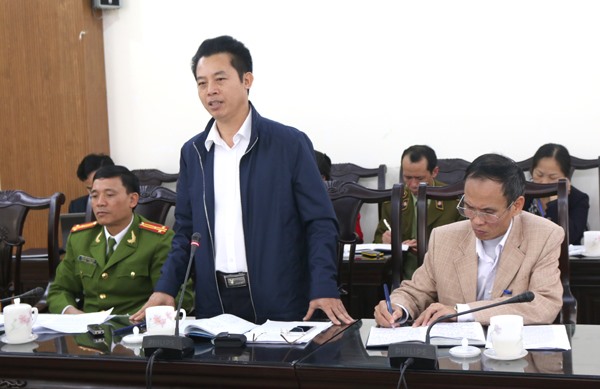.jfif) Opinion
Opinion

Nguyễn Khánh Quang, deputy head of the General Department of Customs, talks to the Viet Nam News Agency about measures to block cross-border cigarette smuggling.
 |
| Nguyễn Khánh Quang |
Nguyễn Khánh Quang, deputy head of the General Department of Customs, talks to the Viet Nam News Agency about measures to block cross-border cigarette smuggling.
What are your comments on cigarette smuggling activities in the first 10 months of this year?
I should say cigarette trafficking and smuggling activities along the border provinces, from the north to the south, have become a hot issue for our anti-smuggling forces. Smugglers’ activities are diverse, so are their tactics. The most popular smuggled cigarettes are Triple 5, Marlboro, Jet, Esse, Hero, Chinese cigarettes and tobacco materials.
The smugglers have deployed quite diverse tactics in their transportation, including close surveillance of our anti smuggling forces. In the southern border provinces of Long An, Đồng Tháp, An Giang and others, they have even used power boats to transport goods. If detected by anti-smuggling forces, smugglers have resorted to all means to flee and avoid arrest. In worst cases, they have asked their local accomplices to fight back against law enforcement officers.
What has the General Department of Customs done to deter such smuggling crimes?
Under the instruction of the Prime Minister issued on September 30, 2014, the General Department of Customs (GDC) has ordered all municipal and pprovincial customs departments to increase their daily patrols and inspection activities, particularly at the border gates and border routes.
In addition, they have asked customs officers to co-ordinate with other agencies, including the Market Watch forces, police and local administrations.
On special occasions, like the Lunar New Year, the anti-smuggling forces have launched operations to deter smuggling activities.
We have also launched communication campaigns to raise people’s awareness about cigarette smuggling and asked them to join the fight.
In the first 10 months of this year, Customs forces with support from other anti-smuggling forces, have detected and seized 55,600 kg of cigarette materials and 579,747 cigarette packets
What challenges are the anti-smuggling forces facing?
As we all know, most of our border topography is very complicated. The steep, earth roads, particularly during the monsoon season, are very treacherous and pose difficulties for law enforcement officers in their operations.
In addition, most of the people living along the border line are very poor. They don’t have stable jobs. That’s the key reason they become cross-border transporters for smugglers or informants for them. Our law doesn’t have any sanction mechanism against people who work as informants against the interest of the general public.
Nowadays, smugglers are very malicious and they are ready to counter-attack law enforcement officers in case they are detected or arrested. This has become a headache for us in the fight against cross-border smuggling.
The Lunar New Year – the biggest festival of the Vietnamese people – is coming soon. Does the GDC have any plan to deter the cross-border cigarette activities at that time?
We’ll develop detailed activities for anti smuggling law enforcement officers, particularly those stationed at border checkpoints as we approach the Lunar New Year festival.
We’ve instructed all city and provincial customs departments to increase their activities, particularly collection of information in key areas as well as developing specific plans to foil smuggling.
To facilitate cross-border checks, we’ll open training courses for customs officers and provide them with good facilities to perform their jobs quickly and efficiently. We vow to stop cigarette smuggling right at the border gate and adjacent areas.
Last but not least, we try to ask the Government and local governments to develop economic activities for residents along the border. We consider this to be very important; if they have stable jobs and sustainable income, they will not work as transporters for the smugglers. – VNS




